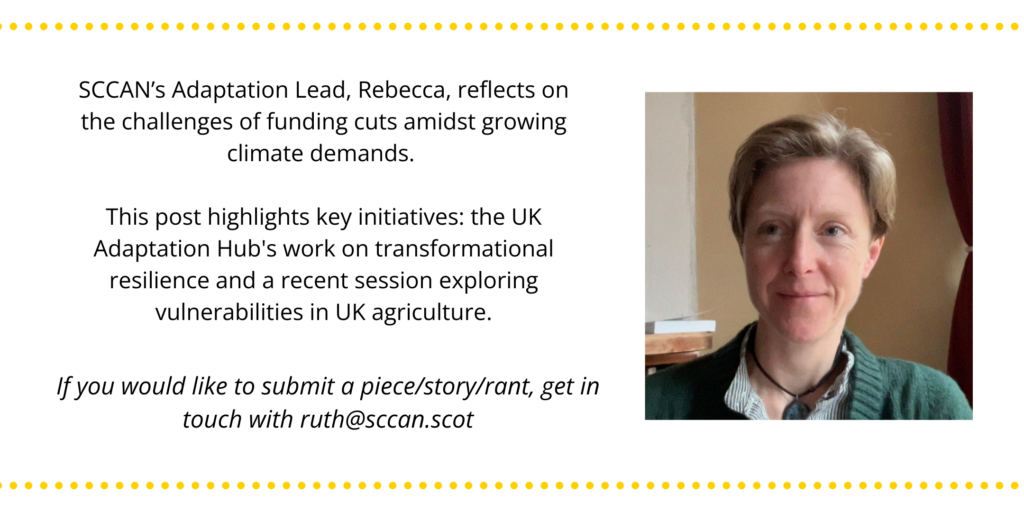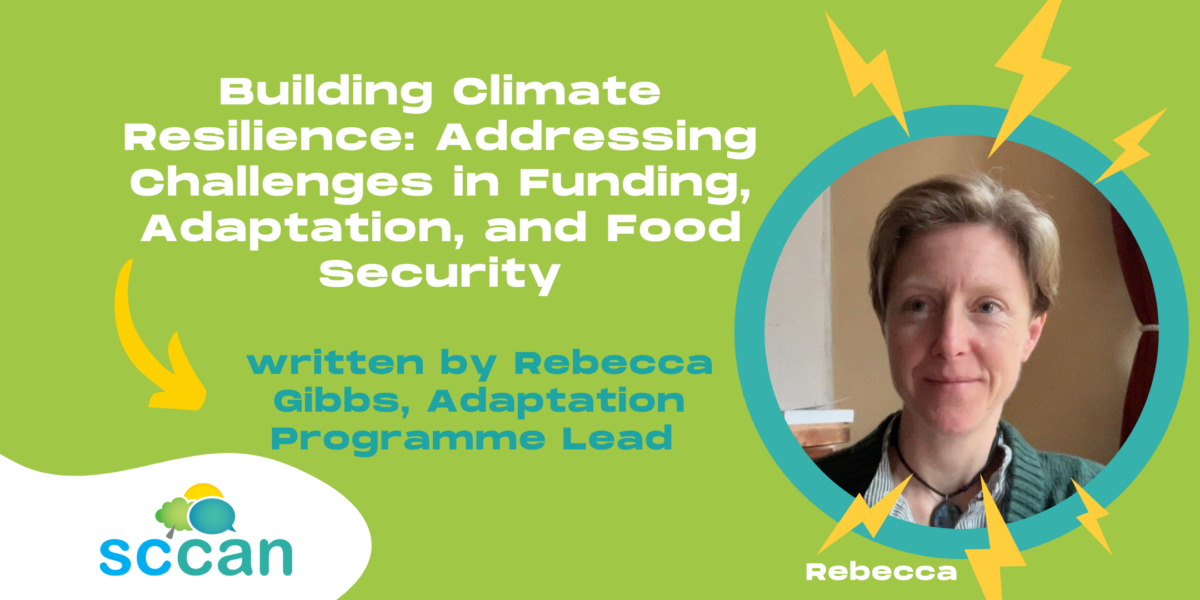
As many of you will know, along with countless other community organisations, this is a difficult December for SCCAN. The first quarter of the 20th century has not been short of strange things. Perhaps we should number among them the funding crisis in the community sector at the point when the toxic combination of austerity and climate impacts is demonstrating how much we should all be doing and how quickly we should be doing it. If only we were busy shrinking organisations and saying goodbye to fabulous colleagues because there was no longer a need for community climate resilience.
There’s so much more to say on this but I’m thinking that a more practical way forward is to share with you two things that I thought were really good in the last couple of weeks.
1. Maximising UK Adaptation to Climate Change Hub
Dr Helen Adam’s, head of the new adaptation hub, gave a presentation at this months Exeter Community of Practice meeting:
This important new kid on the climate resilience block is funded by the UK Research & Innovation (UKRI) and the Department for Food and Rural Affairs. It has transformational adaptation as its organising principle, taking seriously the social problems that increase vulnerability to climate impacts. Dr Adams is clear that this knowledge exchange hub is about supporting the “doing” of adaptation. It is centrally based at King’s College London with ‘spokes’ in each of the UK nations. The Scottish ‘spoke’ run by Adaptation Scotland will be launched on 4th February.
Readers of this newsletter should also note the details of a flexible fund to accelerate ‘on the ground’ activities in partnership with local communities will be launched next year. Follow developments by signing up for the newsletter here.
Oh and if you’re not part of the Exeter Adaptation Community of Practice then you’re missing out. Access the excellent back catalogue here.
2. Recipe for Disaster
One of my Cadence Roundtable colleagues organised a great session investigating the vulnerability of UK agriculture in the face of climate impacts.
Tom Lancaster, Head of Land Food and Farming at ECIU (Energy & Climate Intelligence Unit), and Noah Wescombe, Head of Policy at ALLFED (Alliance to Feed the Earth in Disasters) both gave really detailed presentations exploring vulnerabilities and challenges in relation to food we produce, trade and eat.
As you can see from Noah’s slide below, the complexity and multiple interdependencies are no small part of the picture. If you’re concerned about shocks to the food system this is a good place to start. Full slide sets from Tom Lancaster and Noah Wescombe
I hope that the lead up to Christmas is a good one for you and the folk you work with.

